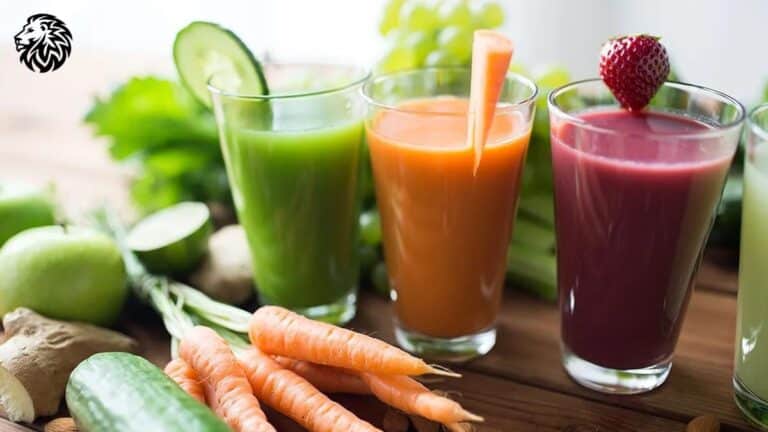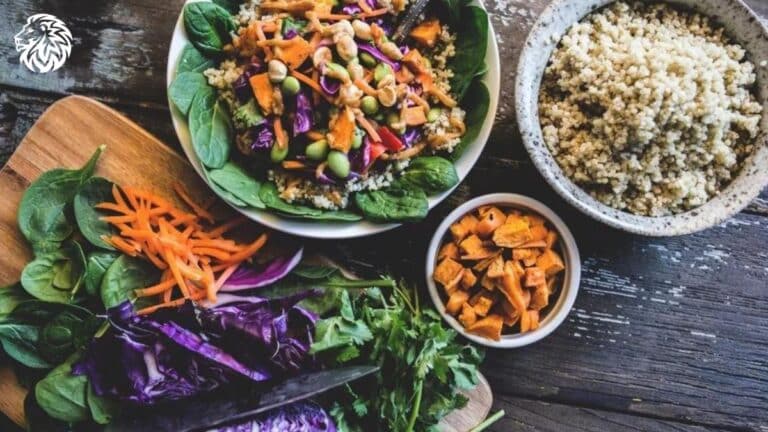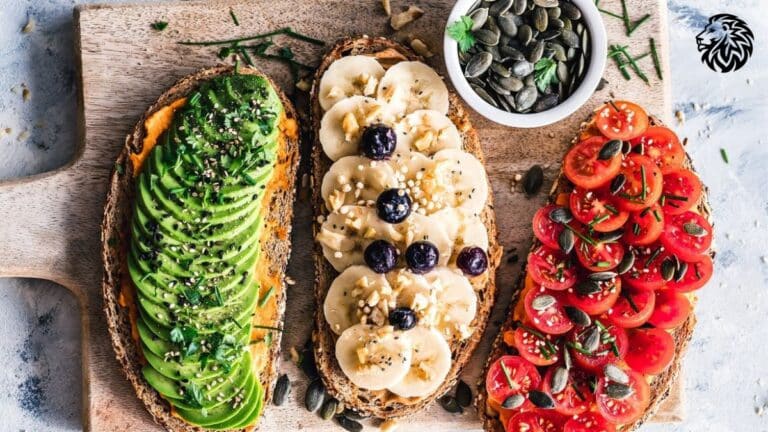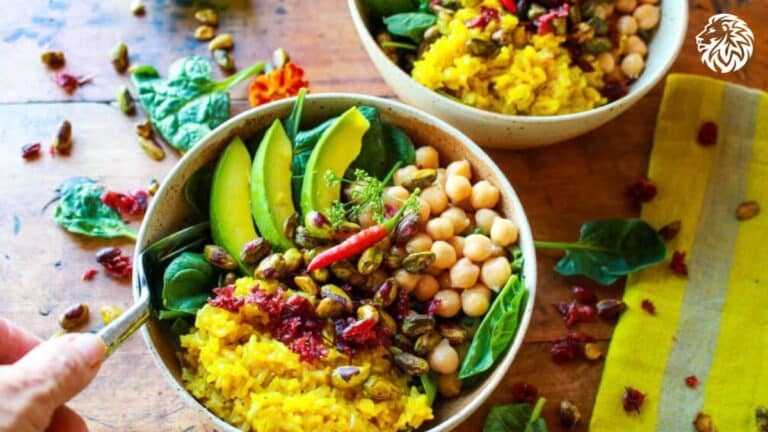Imagine centering your meals around the rich, colorful world of plants, where your plate is filled with vibrant fruits, hearty vegetables, comforting legumes, crunchy nuts, seeds, and nourishing whole grains. A plant-based diet isn’t just about ditching meat or animal products. It’s about letting plants take the main stage in your meals, while animal products play a secondary role, or perhaps none at all.
The wave of interest in plant-centric eating isn’t just a trend—it’s a reflection of a global awakening. People everywhere are tuning into the tangible health perks that come from embracing fruits and veggies, like the potential to ward off chronic diseases. But it’s not just about personal wellbeing. It’s also a nod to the Earth and our fellow creatures, as embracing plants can mean less environmental strain and a step back from industrial animal farming.
And let’s not forget the fun stuff – the magic that chefs and foodies are creating in the kitchen with plant-based ingredients! From rich, creamy nut-based cheeses to scrumptious veggie burgers, plants are proving themselves to be versatile and downright delicious. This isn’t just a diet, it’s an exploration of flavors and a journey towards compassionate, conscious eating, welcoming everyone, no matter their dietary history, to give it a whirl!
Benefits of Adopting a Plant-Based Diet

Health Advantages
The health benefits of a plant-based diet are vast and well-documented. Such a diet has been associated with a lower risk of developing chronic conditions like heart disease, diabetes, and certain cancers. It often promotes weight management, improved digestion due to higher fiber intake, and enhanced longevity. Additionally, a nutrient-dense, plant-based diet can provide ample vitamins, minerals, and antioxidants, essential for overall wellbeing.
Environmental Impact
Adopting a plant-based diet can also substantially mitigate environmental degradation. It generally demands fewer natural resources, such as land and water, and results in lower greenhouse gas emissions compared to animal agriculture. The reduction in reliance on livestock farming can also diminish deforestation and biodiversity loss, thus promoting a more sustainable food system that is better aligned with ecological preservation.
Ethical Considerations
From an ethical standpoint, embracing a plant-based diet often aligns with concerns regarding animal welfare. The industrial livestock sector has been scrutinized for its treatment of animals and practices which many consider inhumane. By choosing plant-based options, individuals can minimize their participation in systems that exploit animals, thereby aligning their dietary choices with a broader ethical framework that prioritizes sentient beings’ welfare.
Collectively, the health, environmental, and ethical merits underscore the multifaceted benefits that can be accrued from adopting a plant-based diet, fortifying its status not just as a dietary choice, but as a holistic lifestyle decision.
Core Components of a Plant-Based Diet
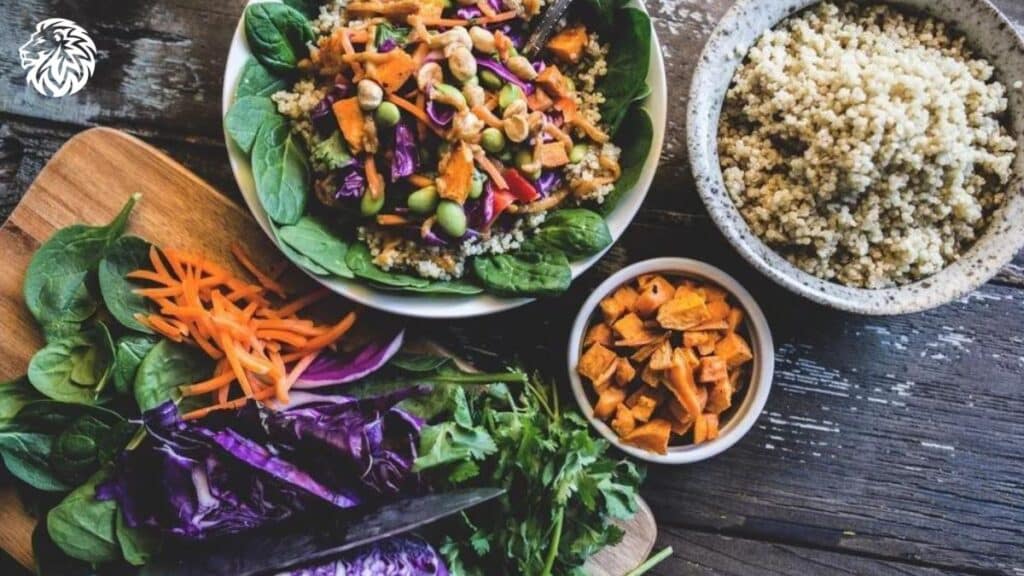
Fruits
Variety and Nutritional Value:
Fruits, in their vast array of types, colors, and flavors, deliver a rich supply of essential nutrients like vitamins, minerals, and antioxidants. From berries and citrus fruits to tropical and stone fruits, each variety brings a unique set of health-promoting properties, offering benefits such as immune support, skin health, and digestive aid.
Incorporation into Daily Meals:
Integrating fruits into daily meals can be done in numerous creative ways, such as smoothies, salads, desserts, and as snacks. Their natural sweetness and versatility also make them a healthy alternative to satisfy sweet cravings.
Vegetables
Different Types and Their Benefits:
Vegetables, categorized broadly as leafy greens, cruciferous, root, and more, are foundational to a plant-based diet. They provide vital nutrients like dietary fiber, vitamins A, C, and K, and potent phytochemicals, which play a critical role in maintaining optimal health.
Usage in Diverse Cuisines:
Vegetables can be utilized in a multitude of culinary applications across various cuisines, including stews, stir-fries, salads, and as side dishes, providing endless possibilities for exploration and enjoyment in meals.
Legumes
Types and Protein Content:
Legumes, which include beans, lentils, and peas, are celebrated for their high protein and fiber content. They are a staple protein source in a plant-based diet, also providing essential minerals like iron and magnesium.
Versatility in Recipes:
Legumes can be employed in a myriad of recipes, from hearty soups and stews to salads and plant-based protein alternatives, showcasing their adaptability in various culinary contexts.
Whole Grains
Nutritional Importance:
Whole grains, such as brown rice, quinoa, and oats, are imperative for their provision of sustained energy, fiber, and various B vitamins. They support digestive health and can assist in maintaining steady blood sugar levels.
Different Grains and Their Uses:
Whole grains can be incorporated into meals in diverse ways, such as in cereals, bread, pilafs, and baked goods, offering a wholesome, nutrient-dense base or component in numerous dishes.
Nuts and Seeds
Nutritional Profiles:
Nuts and seeds are powerhouse foods, providing healthy fats, protein, and various micronutrients. They are particularly notable for their heart-healthy fats and ability to provide satiety.
Integrating into Meals:
From being used in plant-based milk and cheese to being sprinkled over salads or blended into smoothies, nuts and seeds enhance meals with their rich textures and flavors while upscaling the nutritional value.
These core components not only form the foundation of a plant-based diet but also ensure a symphony of flavors, textures, and nutritional benefits that can cater to diverse palates and dietary needs.
Supplemental Foods in a Plant-Based Diet

Plant-Based Proteins
Tofu, Tempeh, and Seitan:
These are popular protein-rich foods in a plant-based diet. Tofu and tempeh, made from soybeans, and seitan, derived from gluten, are notable for their ability to absorb flavors and adapt to various cooking methods, making them versatile meat substitutes in various dishes.
Legume-Based Alternatives:
Legume-based proteins, such as chickpea patties or lentil loafs, have become increasingly popular for their nutrient density and textural similarity to traditional meat-based products, providing satisfying alternatives without sacrificing flavor.
Plant-Based Dairy Alternatives
Milk, Cheese, and Yogurt Alternatives:
Alternatives like almond milk, cashew cheese, and coconut yogurt have risen in popularity due to their ability to mimic the textures and flavors of traditional dairy while being lactose-free and plant-based.
Cooking and Baking Substitutions:
Plant-based milks and butters can be seamlessly integrated into cooking and baking, often requiring minimal adjustment to traditional recipes and allowing for a wide array of dairy-free dishes and baked goods.
Sweeteners
Natural vs. Artificial Sweeteners:
Natural sweeteners, such as maple syrup and agave nectar, are often favored in a plant-based diet over artificial alternatives due to their unrefined nature and additional micronutrient content.
Healthier Choices:
Choices like stevia, monk fruit sweetener, and date syrup might be considered healthier alternatives due to their lower glycemic index and calorie content, providing sweetness while aligning with health-conscious dietary patterns.
Incorporating these supplemental foods enables individuals to explore a wealth of flavors and textures within a plant-based diet, ensuring that it is both nutritionally adequate and culinarily exciting, thus making the transition smoother and sustainable in the long run.
Strategies for Transitioning to a Plant-Based Diet
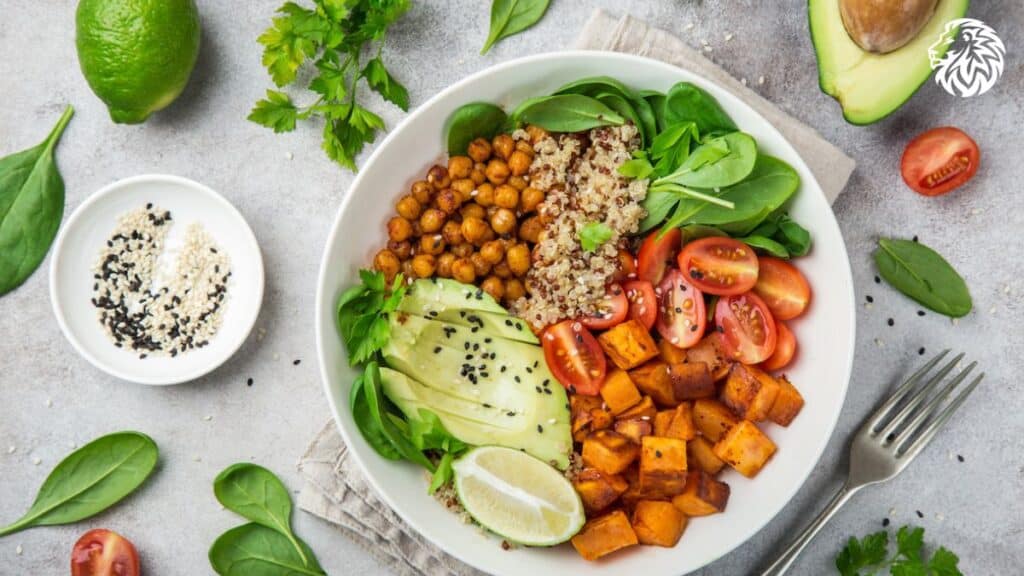
Gradual Changes and Setting Goals
Starting with smaller, attainable steps, such as introducing Meatless Mondays or gradually increasing the number of plant-based meals per week, can make the transition smoother. Setting clear, achievable goals related to meal planning, grocery shopping, and nutritional intake ensures a structured and less daunting shift towards a plant-based diet.
Replacing Meat-Based Meals with Plant-Based Options
Identifying familiar, favorite meals and exploring how they might be recreated with plant-based ingredients can be a fun and satisfying approach. Utilizing plant-based proteins like tofu, tempeh, or legumes to replace meat in dishes like burgers, stews, or stir-fries helps in maintaining familiar flavors and textures, making the diet change more palatable and relatable.
Meal Planning and Preparation Tips
Planning meals ahead of time, batch cooking, and having a repertoire of quick, easy recipes can facilitate a smooth dietary transition. Ensuring a balance of proteins, fats, and carbohydrates in meals, and having healthy snacks readily available, assists in maintaining nutritional balance and avoiding potential pitfalls during busy periods.
Strategically approaching the transition to a plant-based diet through mindful adjustments, thoughtful replacements, and pre-emptive meal preparation can alleviate potential challenges and enhance the enjoyability and sustainability of the dietary shift.
Challenges and Misconceptions
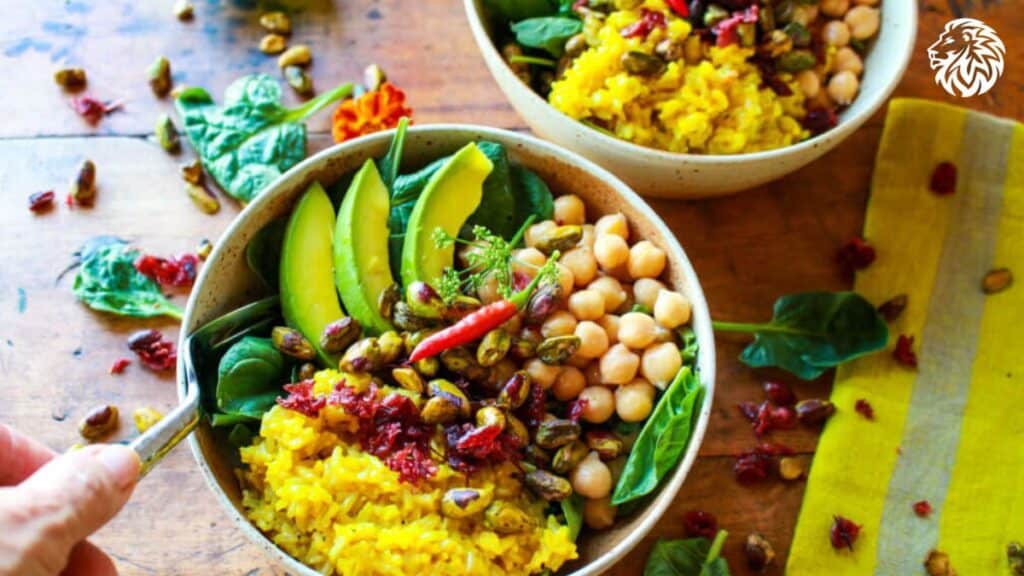
Protein Sources and Sufficiency
One prevalent misconception regarding plant-based diets is the perceived difficulty in obtaining sufficient protein. While it’s crucial to be mindful of protein intake, numerous plant foods, such as legumes, grains, and nuts, are abundant in protein. Understanding the array of plant-based protein sources and incorporating a variety can ensure adequate protein intake.
Ensuring Nutritional Completeness
Concerns often arise about obtaining a complete nutrient profile on a plant-based diet. While certain nutrients, such as Vitamin B12, Vitamin D, and Omega-3 fatty acids, may require additional attention, a well-planned plant-based diet can provide all the necessary nutrients for maintaining health, possibly with the aid of specific supplements.
Expense and Accessibility
The belief that a plant-based diet is inherently expensive or inaccessible can be a deterrent for some. While certain specialty products might carry a higher price tag, staple foods like beans, lentils, grains, and vegetables can be quite economical, especially when purchased in bulk. Furthermore, with the rise in popularity of plant-based eating, options are becoming increasingly available in various regions and retail outlets.
Addressing these challenges and misconceptions head-on by providing scientifically-backed information, practical tips, and resourceful solutions will enable individuals to navigate through potential hurdles and establish a sustainable and nutritious plant-based diet.
Conclusion
In conclusion, the pivotal aspects of adopting a plant-based diet encompass understanding its multifaceted benefits relating to health, the environment, and ethics; familiarizing oneself with its core and supplemental food components; strategically navigating the transition; and debunking common challenges and misconceptions.
Transitioning to a plant-based diet is a commendable step towards fostering personal health and contributing to environmental conservation. For those seeking further guidance, numerous resources, such as books, documentaries, websites, and community groups, are available to provide support, inspiration, and practical advice on maintaining a nutritious and enjoyable plant-based lifestyle. Through informed choices and a supportive community, adopting and thriving on a plant-based diet becomes an attainable and rewarding endeavor.
By elucidating the crucial elements, debunking myths, and offering pragmatic strategies, the article strives to empower readers to explore, adopt, and relish the journey through a plant-based diet, reaping its myriad benefits for personal well-being and global sustainability.

